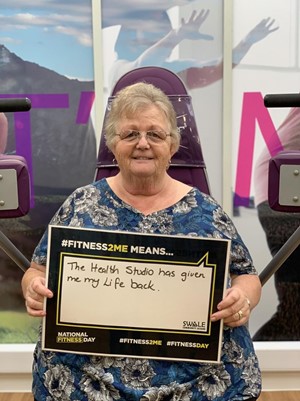Recover and Reinvent…it’s time!
The launch of Sport England’s 10-year strategy, Uniting the Movement, forms a pivotal moment in our industry and the role we play in society. The first of the Five Big Issues is perhaps the most important and overarching: a chance to Recover and Reinvent. The sector must seize the moment to ‘reinvent’ and interpret recovery as an opportunity to get itself and the nation back on its feet (and moving) and not just ‘get back to normal’.
“We have an opportunity to use the disruption Covid-19 has brought to accelerate progress – to reinvent as more agile, inclusive and resilient and to change the way we do things so we better meet the needs of everyone, in every community.”
Sport England, Uniting the Movement, January 2021
The first of the five ‘Big Issues’, Recover and Reinvent is important because it addresses the need for the sector to come back more resilient and more relevant than before. Diversifying leisure provision, beyond the 15% of the population who typically have gym memberships, to include other audiences, including older people opens opportunities for operators to reach further into their communities, providing business, health and social benefits.
- Business benefits aren’t just for the private sector – progressive local authorities ensure that leisure is financially viable and competitive, gaining a strong financial return on investment in order to make the best and sustainable use of public money
- Health and social returns on investment aren’t just for public sector operators – intelligent private gyms realise that competing only on price offers a diminishing share of the same regular gym membership (the 15%) and misses out on looking ahead to the untapped opportunity
Reinvent to recover
The growing older exercise market provides an exciting and timely income generating opportunity for both leisure operators and local authorities who recognise the opportunity and seek to grow post-pandemic?
In 2018 the financial journal Barron’s described spending by the over 65s, the ‘longevity economy’, as ‘the mother of all untapped markets’.
- There are approx. 12m people aged over 65 in the UK (18% of the population) – which is expected to rise to 22% by 2030
- In 2014, Saga reported that the over 50s accounted for around half of spending on health, recreation and culture, alcoholic beverages, restaurants and hotels
- Consumer spending in the over 50s has consistently outstripped that of younger age groups
- The over 50s account for 76% of the nation’s financial wealth
“The rise of the longevity economy remains the most important yet predictable market event facing the investment community today but selling more of the same old solutions is no longer a safe bet.”
Joseph F. Coughlin, founder and director of the MIT AgeLab
Spending confidence in older people helped the UK recover from the previous recession
Following the economic downturn of 2008/9, the over 50s helped to lift the UK out of recession, accounting for over 44% of UK household expenditure in 2009. By 2012, this grew to 47%.
Saga’s strategy director said: “People are living longer and have more active social and economic lives…the over 50s have become big earners and even bigger spenders. Their confidence in the future has made them willing to lift their spending faster than other age groups.”
Reinvent to increase business resilience
15% of sporting age adults buy gym memberships: often younger, fitter people who see gyms as places for ‘people like me’ or as aspirational places for who they want to become. But what about whose goals are somewhat different? What if you simply want to ‘add years to life’ and life to those years so you can remain independent to enjoy a long, healthy, active life?
Operators who take the older market seriously can attract an untapped membership group, which the majority of the industry continue to consistently overlook. Why, as we emerge from lockdown, would we still focus on the same 15% that buy gym (and switch between) memberships?
COVID-19 has given us all an opportunity to shake up how we work and do business and the ‘new normal’ should not be a scramble to recreate what we had before the pandemic. Instead, we should look up from the treadmill and see new opportunities.
Reinvent to increase health and social resilience
Physical activity is vital to our economy as a preventative or rehabilitative health and wellbeing intervention. Sir Simon Stevens, NHS Chief Executive, describes the leisure sector as ‘the front line of the NHS’.
Physical activity generates massive benefits for individuals and for society. And with improved physical and mental health comes a reduction in demand on health and social care services from those most likely to need them:
- Fewer GP visits
- Prevention and management of long-term conditions
- Improved happiness and mental health
- Improved recovery from operations and illness
- Reduced social isolation and loneliness
- Improved resilience towards seasonal illnesses such as Winter Flu and Covid
“Getting older people more active, more often provides social and economic value – so Councils should break the silos and fund sport and physical activity from health, social and leisure budgets”
Our mission at Shapemaster is to help people remain fit and healthy in the second half of their lives.
Let’s seize the moment to reinvent our sector and recover from the pandemic.
 Finally… it’s all about Joan
Finally… it’s all about Joan
For all the economic and business advantages of keeping the older population more active more often, it comes down to people. No spreadsheet or bottom line can outweigh the emotional impact that physical activity has on older people’s health and social lives. At the end of the day, this matters more than anything.